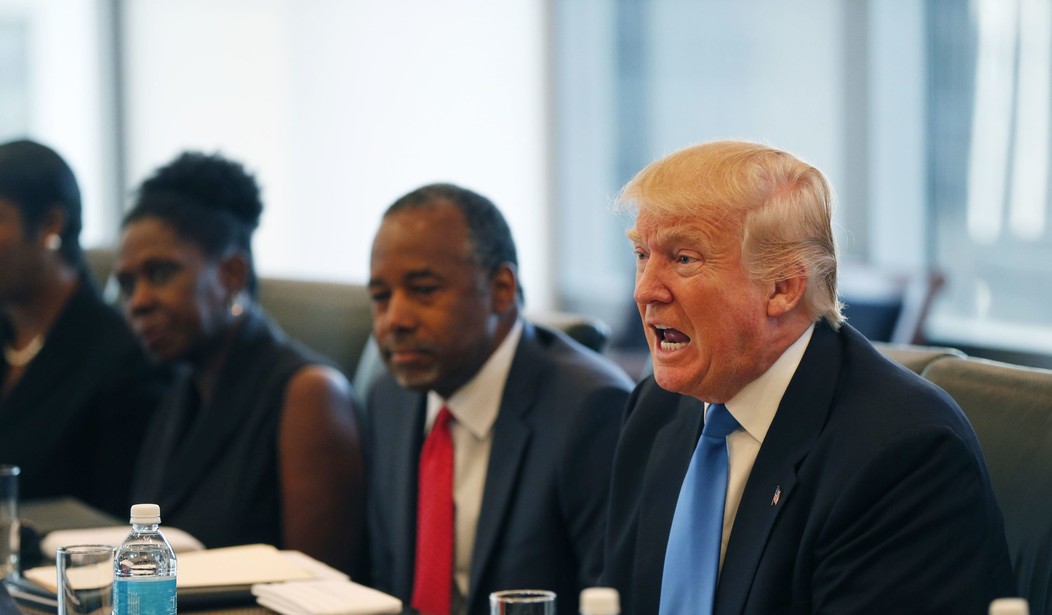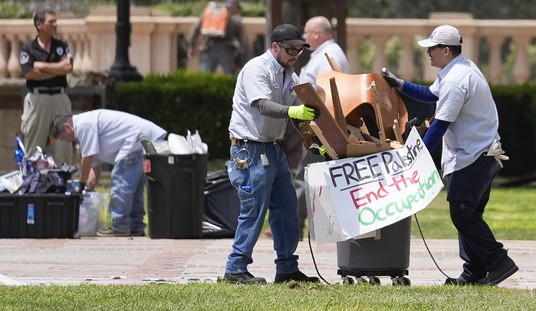More than half of all Americans would be afraid of a Donald Trump presidency, according to an Associated Press-GfK poll released Friday. The poll showed dismal numbers for both Hillary Clinton and Donald Trump across the political spectrum, suggesting most Americans consider the 2016 presidential election a bad dream. Over 90 percent of likely voters said opposing the other candidate is a reason they chose to support their presidential pick.
“We as Americans should be embarrassed about Donald Trump,” 66-year-old Oregon Republican Michael DeLuise told the AP. “We as Americans have always been able to look at the wacky leaders of other countries and say ‘Phew, that’s not us.’ We couldn’t if Trump wins. It’s like putting P.T. Barnum in charge. And it’s getting dangerous.”
A full 56 percent of respondents said they would fear a Trump presidency, while 43 percent would be afraid of a Clinton term in the White House. Forty-eight percent said they would feel “angry” if the Republican became president, compared to 37 percent for Clinton.
Only 27 percent said they would be “excited” about the Republican entering the White House, and a paltry 23 percent said they would feel “proud.” Clinton’s numbers aren’t much better however — only 30 percent said they would be “excited” for her, and 32 percent said they would feel “proud.”
A huge portion of likely voters said they chose their preferred candidate based on their opposition to the other one.
Of Clinton, 36-year-old Wisconsin Republican Denise Pettitte said, “I think she’s an extremely dishonest person and have extreme disdain for her and her husband. I think it would be wonderful to elect a woman, but a different woman.” On the flip-side, 59-year-old Pennsylvania Democrat Mark Corbin said he planned to support Clinton only to stop Trump. “It’s not really a vote for her as it’s a vote against Trump.”
The poll suggested these two angry voters are far from alone. Seventy-eight percent of likely voters listed “I oppose the other candidate” as a “major reason” in “deciding which candidate [they] plan to support this year.” Thirteen percent said it was a “minor reason,” and a paltry 8 percent said that a negative vote is “not a reason” influencing their decision in November.
This means that a full 91 percent of likely voters said they intend to vote against a candidate, whether or not they also actually support the other one, at least on the presidential level. Among Americans in general (including those who do not consider themselves “registered voters” or “likely voters”), the number is only 89 percent.
Views of both the candidates are negative. Only 40 percent had a favorable view of Clinton, compared with 54 percent who viewed her unfavorably. Trump’s numbers were even worse, with 32 percent favorable and 63 percent unfavorable.
Next Page: Americans see Trump as worse than Clinton on everything but corruption, honesty, and jobs.
Poll respondents also described the candidates in terms of character traits, and Trump performed worse than Clinton on every issue besides corruption and honesty. Only 23 percent considered the Republican civil, compared to 51 percent who said the Democrat was. Only 24 percent found him compassionate, while 43 percent said so of her. Only 28 percent found Trump qualified, while 54 percent saw Clinton that way.
A full 51 percent described the Republican nominee as “very or somewhat” racist, while only 21 percent said so of Clinton.
More Americans saw Clinton as corrupt (48 percent) than saw Trump that way (44 percent), and only 28 percent described her as honest, while 30 percent said Trump was.
This slight Clinton advantage held on policy issues as well. She leads Trump narrowly on the economy (45 percent to 43 percent), protecting the country (46 percent to 41 percent), and handling the threat from the Islamic State (43 percent to 41 percent).
Her victory proved more substantial on issues like immigration (46 percent to 39 percent), health care (50 percent to 35 percent), handling the U.S. image abroad (52 percent to 30 percent), Supreme Court vacancies (50 percent to 42 percent), international trade (49 percent to 40 percent), working with Congress (51 percent to 33 percent), improving race relations (54 percent to 25 percent), uniting the country (41 percent to 28 percent), and even in negotiating with Russia (47 percent to 37 percent).
Americans only trust Trump more when it comes to jobs (46 percent Trump to Hillary’s 44 percent). The candidates tie on gun laws, on which 40 percent of Americans trust each candidate (and 5 percent trusted both of them!).
Clinton still led overall, with 42 percent to Trump’s 34 percent. Libertarian nominee Gary Johnson took 9 percent. A full 61 percent said they had not heard enough about Johnson to have an opinion, a knowledge gap which is only likely to grow with the Libertarian candidate excluded from the first presidential debate on Monday.
Trump will need to improve his image in Monday night’s debate. While it may be acceptable for him to rank behind Clinton on issues like health care and the U.S. image abroad, her lead on the economy, protecting the country, and the Islamic State should be deeply troubling to the Republican’s campaign. He will need to surpass her on some of these key issues, and make up some character-trait deficits in order to continue his recent polling upswing.
The past few weeks have shown that Trump can win in November, but it is still an uphill battle. No matter who takes the White House in January, a large segment of Americans will be angry — and it is not unlikely that many will still view 2016 as a bad dream years hence.









Join the conversation as a VIP Member